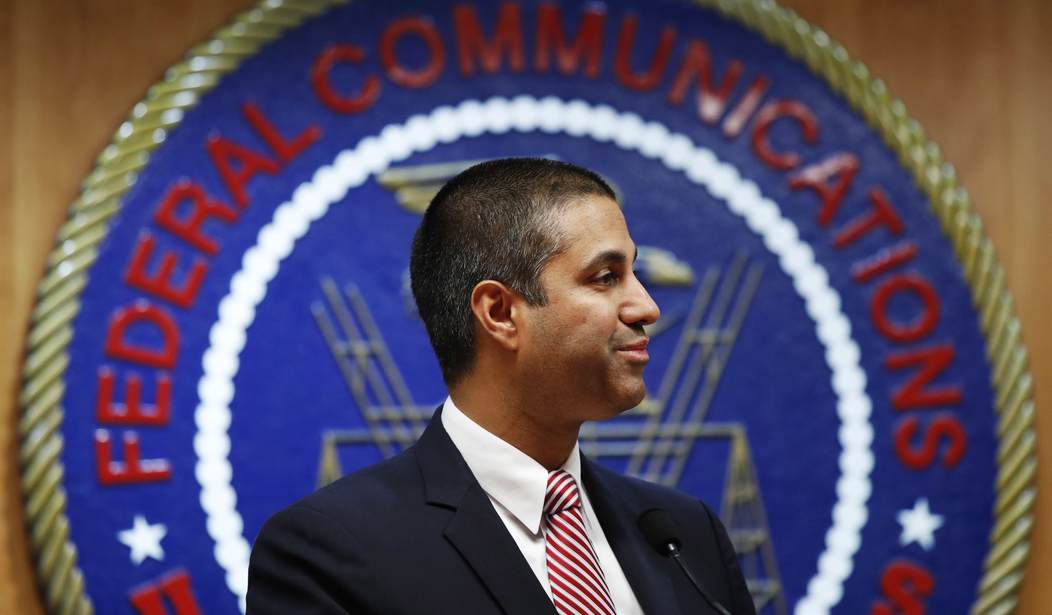Since President Trump assumed office two years ago, his administration and appointees have been dedicated to reviewing the regulatory rulebook and eliminating outdated provisions that suppress economic growth and job creation. Leading the deregulation agenda is the Federal Communications Commission (FCC), which has worked diligently to reverse burdensome Obama-era policies. Their bold actions include rolling back oppressive Title II regulations, auctioning more spectrum for commercial use, streamlining inefficiencies, and more. Now, a new proposal could have a massive impact on opening more consumer internet choices to more Americans.
Last September, the FCC unveiled a notice of proposed rulemaking (NPRM) clarifying the guidelines (and limitations) of how localities are able to charge franchise fees on cable operators. NTU has long noted the impact that excessive fees implemented by state and local governments have in choking video and voice cable deployment, so we commend the FCC for their continued attention to this issue.
For communications service providers, deploying broadband and video cable infrastructure is not as easy as simply digging up dirt and laying wires. Providers face significant pre-deployment barriers from local governments and public utilities that make the process more expensive. In most cases, cable companies must negotiate with local governments for access to specific right of way (ROW) spaces so they can place their lines on publicly or privately owned properties. To the detriment of consumers and providers, localities make it purposefully difficult to access these ROWs by attempting to charge providers exorbitant fees for this access, which can drastically increase the cost of network construction and delay network implementation.
In addition to boosting government coffers, operators may also be required to meet non-monetary conditions of a franchise agreement, usually referred to as “in-kind contributions.” These additional conditions can include public access channels, funds to assist local citizens or organizations in producing programming for these channels, and studios and equipment for those interested in providing local programming. In some cases, it also means providing free or discounted cable services to government buildings.
Recommended
Estimates show cable providers pay more than $3 billion in just monetary franchise fees to state and local governments each year. But it remains unclear the exact dollar amount of in-kind contributions providers are giving to local governments. As is the case with most taxes and fees, higher costs are inevitably pushed on to consumers in the form of higher monthly bills or delayed broadband deployment.
Thankfully, the FCC is attacking the heart of the problem. Their NPRM makes clear that the Congressionally established 5 percent cap on franchise fees must also include the value of in-kind contributions in their calculations. This is a proposal with bipartisan commission support largely because of this fair trade-off to allow for the value inclusion of these offerings.
Naturally, the lobby for local government interests and some Democratic senators are pushing back, arguing it will lead to a loss in desired services that people rely on, but such a scenario is unlikely to happen largely because the infrastructure is already in place. Counties and cities are most concerned about losing the ability to shake down private companies for money and other goodies.
Taxpayers and consumers have a direct interest in this development, as taxes, fees and regulations create new burdens in the market that curb innovation. These burdensome costs not only make it more difficult for more consumers to access video and voice services, but can ultimately increase monthly service bills, and halt the roll out of faster broadband services. Simply put, red tape and artificial costs threaten the ability of Americans to enjoy modern telecommunication services.
The FCC has a real opportunity to rein in money-hungry politicians who see cable providers as nothing more than an endless pit of revenue. Approving the NRPM will make a real difference in the lives of many consumers and encourage greater enhancement of investment across the country to get Americans more connected than ever before.

























Join the conversation as a VIP Member